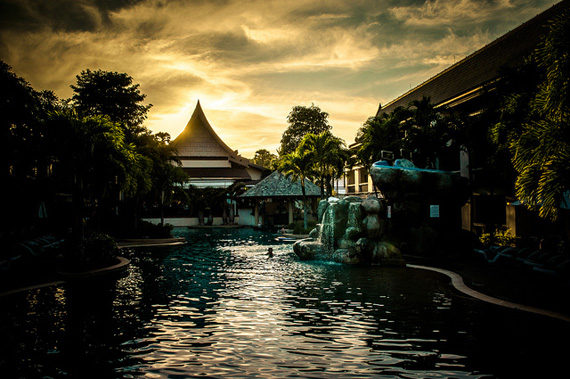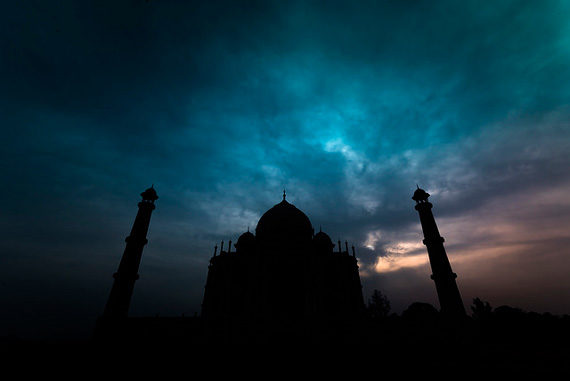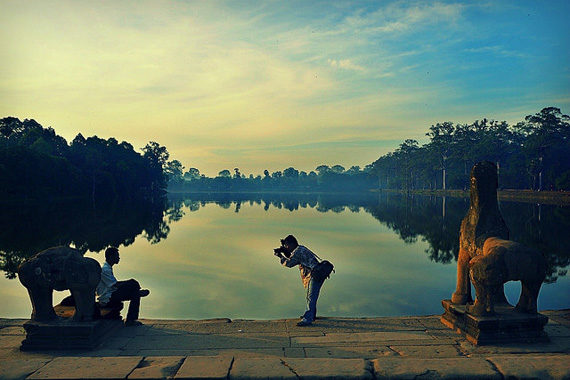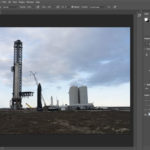The world can be an overwhelming sensory experience, filled with sight, sound and aroma designed to delight all of your senses. How do you capture that experience in a photograph? Most people don’t. Instead, they show their photos with an apology: “You had to be there.” Your job as a travel photographer is to take them there through your photos. So how do you make sure you come home with a killer shot?

Photo by Jonas Smith; ISO 200, f/10, 1/400 exposure.
Keep reading to discover five tips to unlock the secrets of how to take good pictures.
1: Know Your Gear
If you’re struggling to operate your camera, then you aren’t giving all of your attention to your composition. Make sure you know how to operate your camera. Forget about using those different modes that may have come with your camera. The problem with these idiot modes is that the camera is the idiot. It doesn’t know how to make a creative shot – it just averages everything out. You can’t rely upon these modes. Learn how to use the ISO, Aperture and Shutter Speed to make your own exposure decisions.
Different focal lengths can change the way your subject appears. Practice before you go on the trip. Use a foreground subject and take photos at different focal lengths to see how it changes as you change focal length. Pay attention to the background, too.
2: Make a Shot List
There are surely images you want to capture at your destination. Plan ahead. Write down the scenes you want to capture. Imagine you’re taking a dream trip to Paris. Most people will expect you to come home with a shot of the Eiffel Tower, but there’s much more to the city. Include shops on the street, a bakery, your meals, a bottle of champagne or cup of coffee. Every destination has its marquee landmarks, but the soul is often found in little details.

Photo by Kannan Muthuraman; ISO 125, f/14, 1/200 exposure.
Prioritize your list. You may not have time to get to everything on your list, Which ones are “must have” shots?
3: Work the Scene
If there’s one concept you need to accept, it’s this one: You’re going to take some lousy shots.
Don’t worry. Everyone does. There isn’t a photographer in the world who hasn’t made a bad composition. You have to work the scene until you find composition that works.
- Walk around your subject
- Try different angles
- Get low on the ground
- Get above
- Shoot from far away
- Shoot up close
- Use a foreground element in your photo
- Change your depth of field
4: Eliminate Distractions
Have you ever come across a wonderful scene, taken a photo, and felt that your shot didn’t capture the essence of being there? Trust your instincts.
It doesn’t mean that you’ve picked a bad location. Something made you stop to look. Your job is to work until you find a photo that captures the essence of that scene.
You may have too much in the photo causing distraction. It’s too busy, there’s something ugly in the scene, or people are walking around. Start looking for things to eliminate.
There are a number of ways to remove distracting elements and get to the core of your subject. Change your angle. Get tighter on your subject to fill the frame. Change your depth of field to blur distracting backgrounds.
Photographers don’t just snap one image and walk away with a golden masterpiece. Think about what made that scene interesting to you. Was it a shape, color contrast, the way the light falls on your subject? Concentrate on the core element that makes you appreciate your subject and then get rid of the stuff you don’t need.
5: Stop! Don’t Leave Yet
OK, you found an interesting scene or subject. You’ve walked around and think you captured an interesting photo. That’s great! It’s time to go on to the next one, right?
Not so fast. Take some time to look at your photos. Evaluate what you’ve captured and consider what you’ve missed. Chances are you may not be back anytime soon, so be sure you captured everything you wanted before you leave.
Is the exposure right? Think about the shots you didn’t take. If you shot in portrait mode, look for some opportunities in landscape mode. If you shot the whole scene, ask yourself if there are some detail shots that would complement it. Explore your subject from Grand to Granular. Little details can have as much impact as the big scene.

Photo by Roberto Trombetta.
Remember to take plenty of pictures. It helps you discover new ways to interpret your scene and go home with the best shot you can make.
About the Author:
William Beem is a photographer and author living in Central Florida. He manages a blog offering photography tips and travel photos. Occasionally, he also provides training along with the folks at Harmon Photo’s School of Photography.
Like This Article?
Don't Miss The Next One!
Join over 100,000 photographers of all experience levels who receive our free photography tips and articles to stay current:






Love this, really help at this very period am planning to travel for documentary.